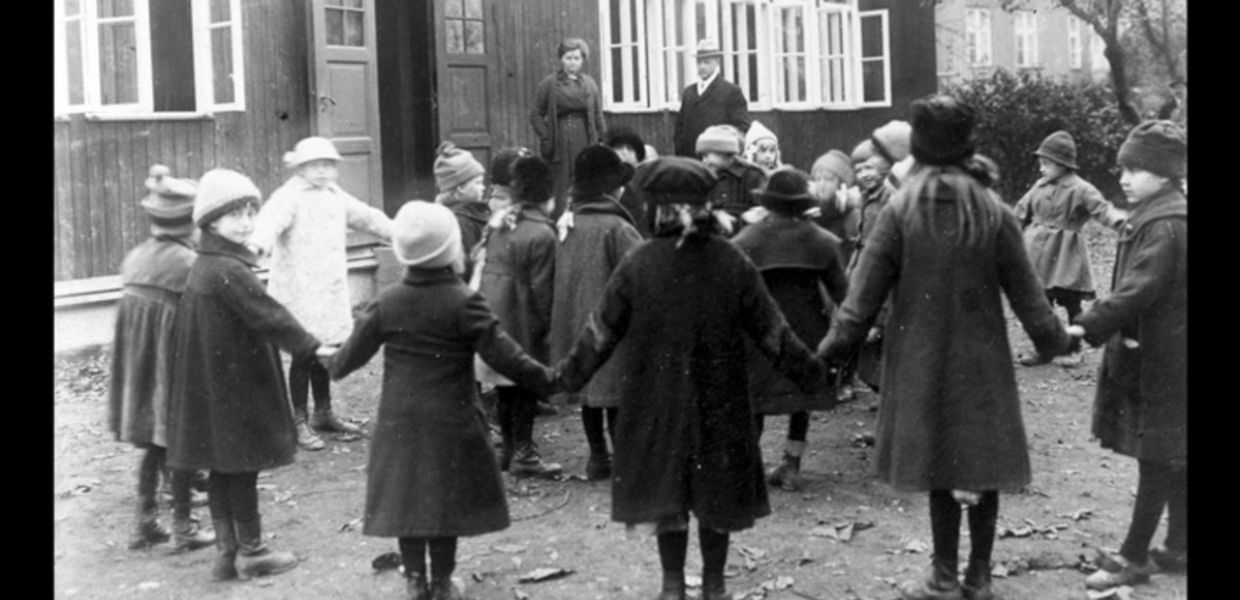20th Century School History for 21st Century Scholars

The 20th century saw a rapid development in schools and education throughout Europe, and school history is a topic of interest to a wide range of researchers in a variety of disciplines throughout Europe and beyond. Much of our cultural heritage is in some way or other tied to the education of school children: of pedagogical and social situations as well as physical environments. For this reason, one of the topics selected for the future content strategy of Europeana Research is European school history of the 20th century.
This topic evolves through three parallel tracks that feed into each other. All three tracks are currently works-in-progress, in the early stages of their development, and suggestions and information would be greatly appreciated.
The first track concerns the identification of material in the Europeana database that may be of interest for research into school history. Europeana includes a great wealth of documented image, sound, video, and text material of potential interest to researchers. We have used a wide range of search terms to identify as much of this material as possible and divided the results into rough categories. Examples of categories include documentaries and news clips about school life, school trips, and the inauguration of school buildings; interviews with school children; pupils’ projects, journals, and exam papers; school reports and registers; political material about school policies; photos of school life, interiors and exteriors, and a plethora of school-related objects.
The second track aims to find European collections of school history that are not part of Europeana but which may be of interest to researchers, and which therefore should be considered for inclusion. There seem to be four different types of museums, but few of them have been found in Europeana (this goes even for national museums for school, education and pedagogics).
- National museums of Schools and Education – large national collections, often digitized, meant for research as well as public access.
- Research Museums of Pedagogy and Education – connected to research institutions. Large collections meant for research. Good chance collections have been digitized.
- Major School Museums – collections of thousands of objects, possibly digitized and with research facilities.
- Minor/Local School Museums – collections of hundreds of objects, often not digitized, and run either under the aegis of a larger institution (which may have provided data to Europeana), or as a hands-on “experience” for families/school classes.
The third track, and the most important one, is engagement with the researcher community. The Europeana Research collections are ultimately meant to be useful resources for future research. Therefore, we attempt to obtain the views and opinions of researchers in relevant disciplines on what material from tracks one and two would be worth bringing into Europeana Research, and what can safely be ignored. Through discussion groups, skype meetings, and e-mail conversations, we hope to get as much input as possible from the scholarly community, on possible content but also on how that content should best be presented and what documentation it requires to be useful. What we learn in this track constantly informs the work in the two other tracks, letting us shape the most useful content strategy we can.
Our work with the content strategy has just begun, and we appreciate any comments, suggestions, and offers of assistance. If you work in the area of school history research somewhere in Europe, and have found something in Europeana that you would like to see included in Europeana Research (or that you know can be excluded); if you know of collections that could be brought into Europeana Research (or collections that should at least be documented there); or if you have any ideas that you think may be helpful, do not hesitate to get in touch!
The Europeana Cloud team at the Swedish National Data Service / University of Gothenburg:
Stefan Ekman: stefan.ekman@snd.gu.se
Ilze Lace: ilze.lace@snd.gu.se
Dimitar Popovski: dimitar.popovski@snd.gu.se
